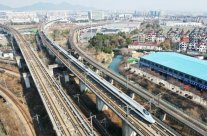
To answer this question, you must first know why the "Asian Four Little Tigers" in the past (editor: Refers to Indonesia, Thailand, Malaysia, and the Philippines) after the high -speed development of the 1980s and 1990s, it has been stunned for a long time, and it cannot be like it."Four Asian Dragons" (compilation: Refers to South Korea, Taiwan, Hong Kong, and Singapore) enter the ranks of developed economies.
In fact, there are many reasons, but the core is undoubtedly: the "Asian Four Little Tigers" failed to achieve industrial upgrading, and still mainly based on low -end manufacturing and labor -intensive industries.In addition to Malaysia's semiconductor industry and Thailand's achieved significant results in the field of automobile manufacturing, it is difficult to find other highlights.
We can analyze the reasons for the formation of this situation from two aspects: economic and political factors.
First of all, from the perspective of economic factors, because the economic industry of the four small tigers in Asia is generally a low -tech content, low value -added, and failed to implement an effective regulatory mechanism in the field of financial security, resulting in the approaching Asian financial turmoil in 1997At the time, the socio -economy was hit hard, and since then, it has fallen into a long state of economic downturn and unable to achieve industrial upgrading iteration.The reason why South Korea, which is also hit hard, can quickly get out of the financial crisis, which originated from the important role of South Korea's solid industrial and technological strength.As early as the 1970s, South Korea gradually realized the upgrade from traditional labor -intensive industries to advanced industries such as steel, shipbuilding, semiconductor, petrochemical, and automotive manufacturing.After these advantageous industries guarantee that the financial system of South Korea can efficiently use the emergency loan of the International Monetary Fund and be able to repay on time after the crisis broke out.The power of the kernel is always the most effective tool to resist external risks.
Secondly, considering from political factors, the geopolitical role of Southeast Asian countries at that time was not obvious.In the 1990s of the financial turmoil, the South China Sea was not the focus of the United States and Japan and other powers. The power of China's naval and air forces could not be involved in the vast South China Sea.In short, the economic safety of Southeast Asian countries has no pivoleous in the international political environment. The United States and Japan and other countries do not have to use technological output and other methods to support the industrial upgrading of Southeast Asian countries.
The change ofThis attitude is beginning to start after the start of the Sino -US trade war in 2018, and in 2022 after the end of the global epidemic, a fundamental change has taken place.In May 2022, the leaders of the Asianan countries collectively held talks with President Bayeng in the White House. The release signal in the United States will vigorously assist the Asianan country to undertake more manufacturing functions in order to weaken China's position in the global manufacturing industry.In fact, Europe and the United States are also working hard in this direction. Through the continuous warming trade sanctions and targets, they forced Chinese companies to continue to relocate.
So, can the "Four Little Tigers" take off again from the wave of China's industrial transfer?The answer is not necessarily.Although the "Four Little Tigers" have obvious economic benefits, it is far from the point where it takes off.The core reason is that China is a major manufacturing country, but not a strong country. The industries transferred to Southeast Asia generally belong to the low -end level and cannot drive the local real estate industry to upgrade.
On the contrary, European and American technology giants Intel, Texas instruments, Germany Yingfei Ling, etc. have continuously increased their investment in Southeast Asia, especially Malaysia, while bringing huge capital to the local area, and also entered the iterative technologies that China do not have."Four Little Tigers" can only break the bottleneck of development only by achieving industrial upgrading.
The author is the founder of Fujian Law Firm China




